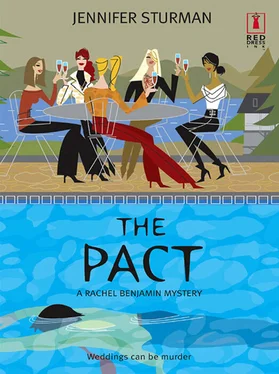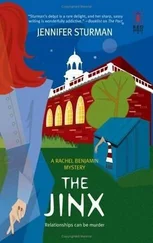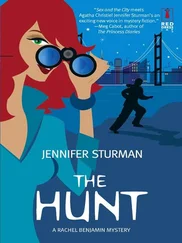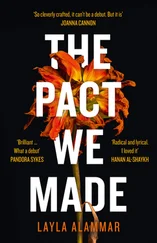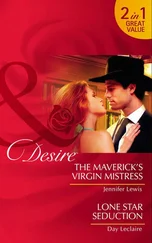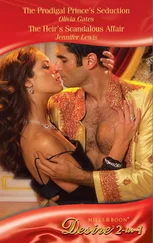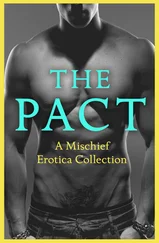Matthew played the big brother role flawlessly, not only to Emma but also to her friends. He rescued us from the endless succession of tasteless cafeteria meals with dinners at unusual restaurants in far-flung corners of Boston. My parents had done their best, like most immigrants, to embrace American culture. So with the exception of the occasional meal of borscht or blinis, I’d grown up on the relatively bland food that they felt was typically American. It was Matthew who taught me to enjoy the rich spices of Indian curries, the intricate blend of flavors in Vietnamese dishes, and the stinging pungency of wasabi. While we stuffed ourselves, he listened to our anguished stories about unwritable papers and unbearable crushes, providing kindness, advice and affirmation along with sustenance. When Emma and I joined Luisa, Jane and Hilary in our sophomore year in Lowell House, he adopted them as easily as he’d adopted me.
Matthew had a life of his own, and he even had the occasional girlfriend. But it was clear to everyone that he and Emma were meant to be together—at least, it was clear to everyone but Emma. The rest of us debated endlessly about when Emma would finally figure it out. Even when Richard and Emma had announced their engagement, on some level I was always confident that eventually it would be Matthew and Emma who would one day make their wedding vows to each other.
Now it looked like that once again was a possibility.
The paramedics had bundled up Richard’s body in a zippered black bag and taken it away, but a host of technicians had joined the police photographer. A couple were busily dusting for fingerprints on the pool furniture and using hand vacuums to collect any shreds of evidence that might lie on the flagstones. The others had disappeared into the pool house, where I assumed they were exploring the guest room Richard had occupied. Mr. Furlong was talking to the policemen on the far side of the pool. The original two had been joined by another two who I guessed were detectives since they didn’t wear uniforms. I could tell from his posture that Mr. Furlong was angry, and I could also tell from their postures that the policemen were intimidated. Mr. Furlong was not a force to be toyed with. His every gesture radiated strength, even when it was as simple as running a paint-stained hand through his bristly gray hair.
With an exasperated shrug he turned from them and made his way toward where Matthew and I were sitting. “What’s going on?” Matthew asked him. “What do the police think happened?”
Mr. Furlong gave Matthew a tired smile, but his eyes were cold as he spoke. “Our local law enforcement experts are intent on blowing up what was clearly an accident into a major event.” The way he said experts made the word sound like an obscenity, and his voice still bore a faint twinge from his Louisiana upbringing. “This is probably the most exciting thing that’s happened up here in a long time. They don’t get many opportunities to use all of their fancy equipment, and they want to make the most of it.”
“They don’t think it was an accident?” I asked.
Mr. Furlong responded to my question with a bitter laugh. “They find the circumstances suspicious and feel that they need to look into the situation more closely. I explained to them that my daughter just lost her fiancé and it would be appropriate of them to demonstrate at least a bit of courtesy, but they’re insisting on talking to everyone present. They also ask that nobody leave the premises until given permission to do so. As if we don’t have enough to worry about with hundreds of guests arriving this afternoon for a wedding that’s not going to happen.”
“Is there anything we can do?” asked Matthew.
Mr. Furlong flashed him a grateful look and responded quickly, as if he’d already thought everything through. “Could you make sure that the police do whatever it is they have to as quietly and quickly as possible? Put them somewhere in the house and make sure they talk to whomever it is they need to talk to and don’t harass anyone. You could probably use the downstairs library.”
“Sure,” Matthew agreed.
But Mr. Furlong had already turned away from us. “I’ll be in my studio if anyone needs me,” he called over his shoulder. I was taken aback. Was he really just going to abandon the situation and return to work?
“Unbelievable,” said Matthew, his voice barely audible, giving words to my own reaction. Then he pulled himself up from the steps and, with a parting pat on my shoulder, ambled over to the policemen.
Unbelievable, indeed.
The Furlongs, so I’d always been led to believe, were the consummate happy family. But I was having difficulty reconciling this long-held conviction with Mr. Furlong’s nonchalant delegation of responsibilities, not to mention the cryptic and heated exchange I’d overhead between him and Emma the previous night. Surely he should be carefully supervising the activities of the police or rushing upstairs to check in on his daughter, and perhaps even his wife, rather than deserting to his studio? He didn’t seem to fully appreciate the gravity of what was happening. If someone in the household had killed Richard, it would be better for one of us to figure it out before the police did so that the situation could be managed properly. Not that I had any idea what would constitute proper management in such unusual circumstances, but I could cross that bridge when I got there. Years of training in sorting out data and figures had made the orderly arrangement of information almost a religion to me, and one thing I had learned was that you had to have your fact base in place before you could make any good decisions.
I rose to my feet and headed through the French doors to the living room. At this time of day, it was bathed with early morning light, which spilled over the glossy butter-yellow walls and comfortable furniture, all upholstered in variations on the theme of chintz. This was the room where Emma and I had spent most of our evenings when I’d visited before, sprawled on sofas reading or playing Scrabble around the coffee table with her parents or Matthew.
I was confident that Jane, with her usual unflappable calm and organizational prowess, would have the situation well in hand upstairs, so I paused to gather my thoughts. My eyes settled on the collection of silver-framed photographs on top of the gleaming Steinway, including a black-and-white picture of the Furlongs on their wedding day. Lily was radiant in a satin dress that accentuated the graceful lines of her collarbone, and Jacob was resplendent in a morning suit. He had the dark good looks of a young Sean Connery, and they set off Lily’s delicate fairness beautifully.
Over the years, I’d learned a lot about Emma’s family, not only from Emma herself but from magazines like Vanity Fair and Vogue, where you could often find articles about Emma’s grandmother, Arianna Schuyler, who had rivaled Jackie Onassis as an icon of style and elegance, or about Lily and Jacob, who had been one of the most prominent couples in New York for decades. I knew that Lily’s parents had quite a different husband in mind for their youngest daughter, somebody who shared their own blue-blooded and Ivy-draped backgrounds.
Instead, Jacob Furlong was the son of a dirt-poor Louisiana farmer. He broke upon the New York art scene in the mid-1960s with a splash that was as much about his bold paintings as it was about the notoriety he quickly gained as a man about town. His picture was just as likely to appear on Page Six of the New York Post, which breathlessly chronicled his exploits with companions like Andy Warhol and Edie Sedgwick, as it was to appear next to a favorable review in the New York Times or ArtWorld.
Читать дальше
